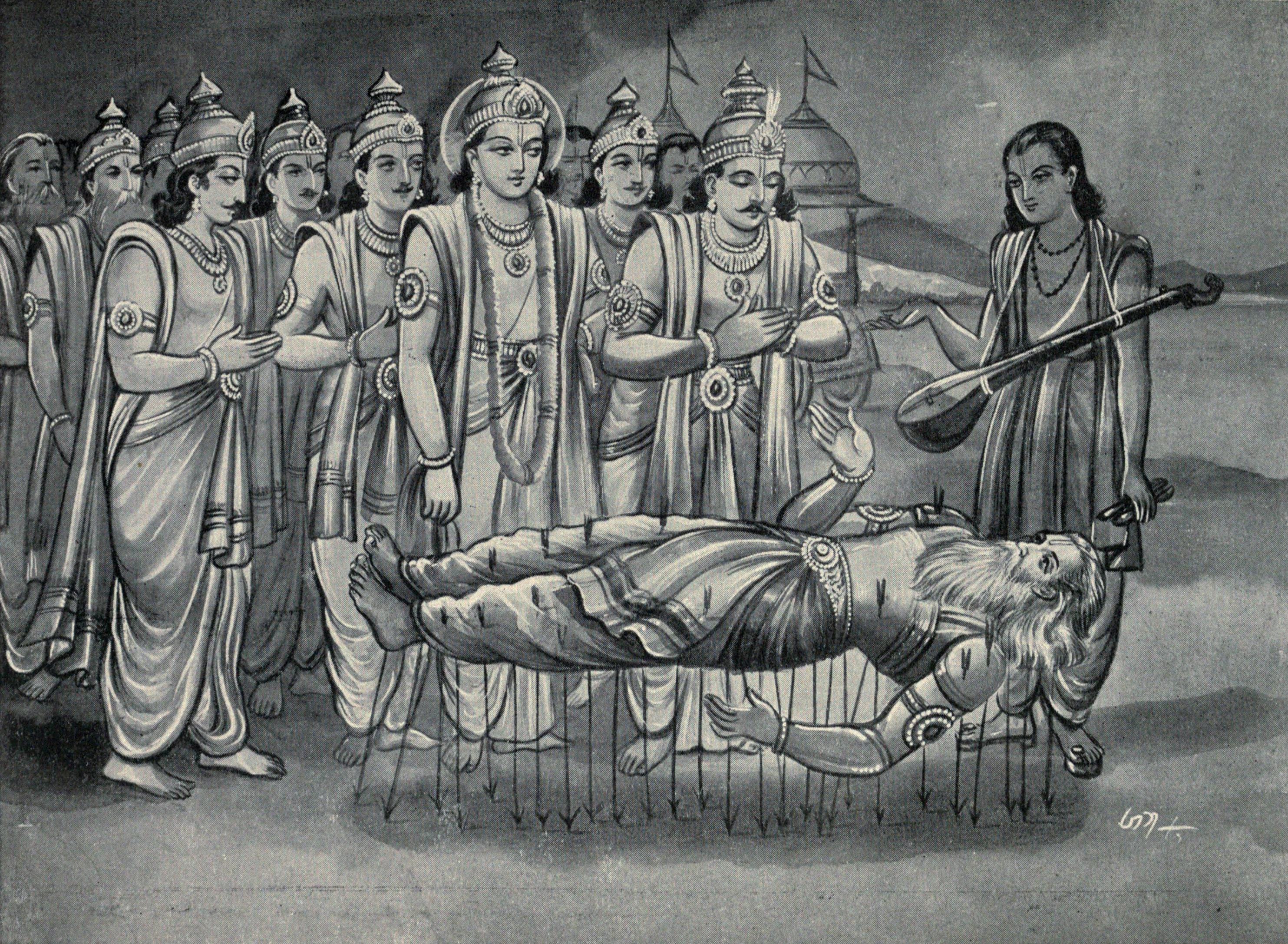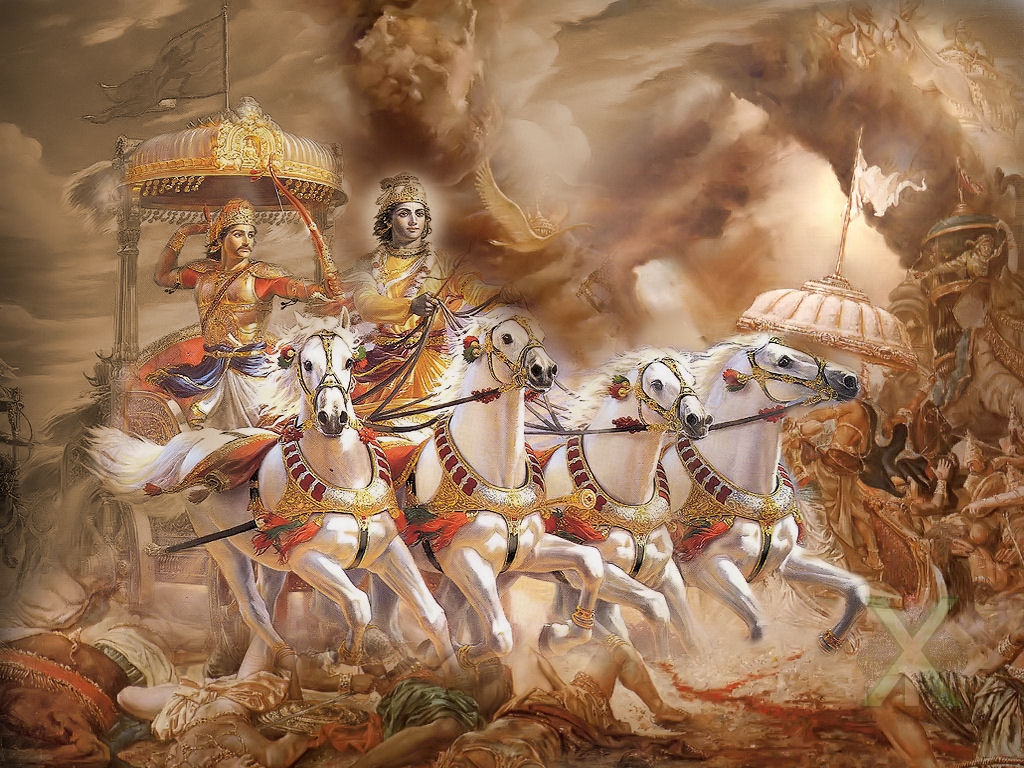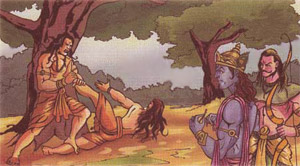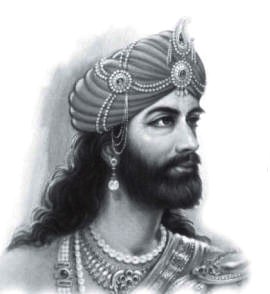Justness of the King is central to the legitimacy of his rule because an unjust king would progressively lose the confidence of the people and his people would no longer be willing to stand by him in times of adversity. If the adverse sentiments and unfavourable popular opinion of the people are gauged by an enemy, he would not hesitate to attack such a kingdom, and since the common man would not stand by an unjust king, it would not be difficult to defeat him. This is a time tested opinion of those well versed in statecraft. Narad feels the same, and the same sentiments are echoed in the writings of Kautilya much later in the day.
Kautilya points out in The Arthashastra:
 “(When the choice is) between a strong king unjustly behaved and a weak king justly behaved, he should march against the strong king unjustly behaved.
“(When the choice is) between a strong king unjustly behaved and a weak king justly behaved, he should march against the strong king unjustly behaved.
The subjects do not help strong unjust king; when he is attacked, they drive him out or resort to his enemy. [ The Kautilya Arthashastra (1972); R.P. Kangle (trnl.), Part 2, p. 335]
Sage Narad, on his part, also advises the king to be always alive to the problems of the masses and he must make sure that nobody undergoes undue hardship for any reason whatsoever. Therefore, he enquires of king if certain measures are being taken under his rule. He sounds a clear warning against unduly harsh punishments when he says, “Oppressest thou not thy people with cruel and severe punishment?”
A cruel and unusual punishment not only breeds resentment in the one who is punished but also those who come to know of it on account of human empathy. Therefore, if the punishment is excessive, the sense of injustice among people gets a breeding ground. And this can gradually erode the legitimacy of the ruler. Punishments must always be proportionate to the offence committed. The concept of proportionate punishment is internationally followed to the day. Disproportionate, excessive or unusual punishments are considered constitutionally questionable in India and the United States, to name just two of the largest democracies in the world.
Corruption is another disease that can gnaw at the very foundations of the State. And Narad seeks to strike at the very root of it when he says:
Treatest thou with consideration and regard the chief officers of thy army that are skilled in every kind of welfare are forward, well-behaved, and endued with prowess? Givest thou of thy troops their sanctioned rations and pay in the appointed time? Thou dost not oppress them by withholding these? Knowest thou that the misery caused by arrears of pay and irregularity in the distribution of rations driveth the troops to mutiny and that is called by the learned to be one of the greatest of mischiefs? Are all the principal high-born men devoted to thee, and ready with cheerfulness to lay down their lives in battle for thy sake?
 Narad also says that nobody who has performed the task in hand outstandingly well must go unrewarded because that can be a cause of disaffection and can send the signal that dutifulness is not appreciated. Narad, therefore, says:
Narad also says that nobody who has performed the task in hand outstandingly well must go unrewarded because that can be a cause of disaffection and can send the signal that dutifulness is not appreciated. Narad, therefore, says:
Is any servant of thine, who hath accomplished well a particular business by the employment of special ability, disappointed in obtaining from thee a little more regard, and an increase of food and pay? I hope thou rewardest persons of learning and humility, and skill in every kind of knowledge with gifts of wealth and honour proportionate to their qualifications.
Reward and punishment are the two great motivators of human being. So, a man would take effort to gain a reward and would go to any length to avoid punishment. Therefore, the king must use both in right proportions to ensure that people love and fear him in sufficient measure.
Narad further says:
Cherishest thou, O son of Pritha, with paternal affection the foe that hath been weakened, or him also that hath sought thy shelter, having been vanquished in battle?
A weakened foe, showered with affection, care and regard, is nearly sure to turn into a trustworthy friend and ally. It is even better than conquering the kingdom that belongs to this king because taking over a kingdom means establishing a new order and system apart from taking the masses into confidence, which could be tough, long-drawn process. But if the King of the kingdom becomes a loyal friend, one gets almost all the benefits of an additional territory without having to manage it. Similar is the position with an asylum-seeking, defeated king. There is always a possibility of the defeated king’s regaining ground and taking back his lost kingdom, in which case he would be a trustworthy ally. And, above all, in both the cases the king would be looked upon as kind ruler who is always willing to help the needy selflessly. This reinforces king’s moral high ground.
Regarding war Narad says:
O son of Pritha, seekest thou to conquer thy incensed foes that are slaves to their passions, having first conquered thy own soul and obtained the mastery over thy own senses? Before thou marchest out against thy foes, dost thou properly employ the four arts of reconciliation, gift (of wealth) producing disunion, and application of force? O monarch, goest thou out against thy enemies, having first strengthened thy own kingdom? And having gone out against them, exertest thou to the utmost to obtain victory over them? And having conquered them, seekest thou to protect them with care?
Narad advises the king to the first further weaken the enemy already weak from being slave to his passions and from anger, and then attack him with greatest possible force to obtain victory. This way the loss sustained by the king in mounting the attack is reduced and the effect of the attack on the enemy is devastating. This also boosts the morale of the attacking forces by reducing casualties.
After conquering the conquered people must be taken due care so that they do not have a seething rancor against the king because if the resentment against the conqueror persists for long it would give rise to unrest and sooner or later people would rise against the conqueror in an attempt to regain their lost prosperity or honour or both. Besides, resentment in a newly acquired territory could be used by the enemies to their benefit. Therefore, the best way is to take good care of the people so that they feel protected under the new ruler, and also see the possibility of a more prosperous future.
By his conduct during the peacetime the king must display kindness and justness while during war his crushing might must be at display so that his people are confident of their security under his rule and are also proud of being part of a powerful kingdom.
Originally published as part of Thinkers and Theory series in Lawyers Update in May 2013.






